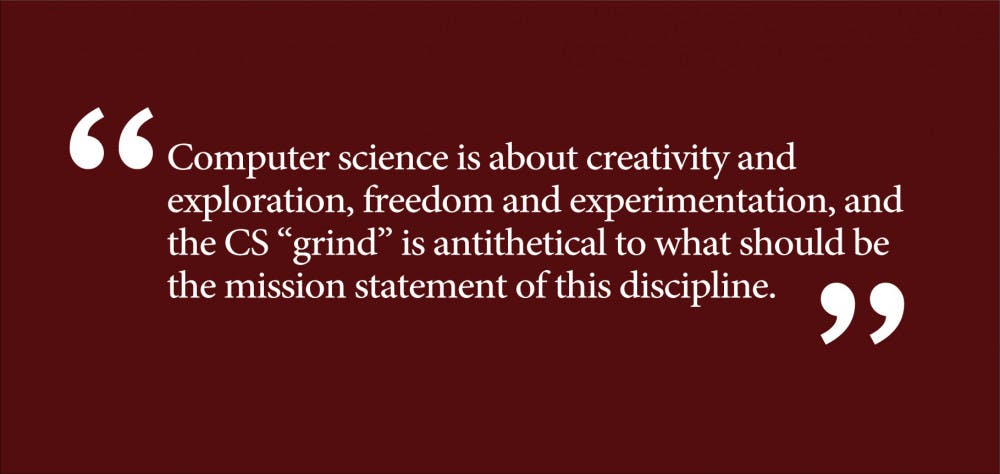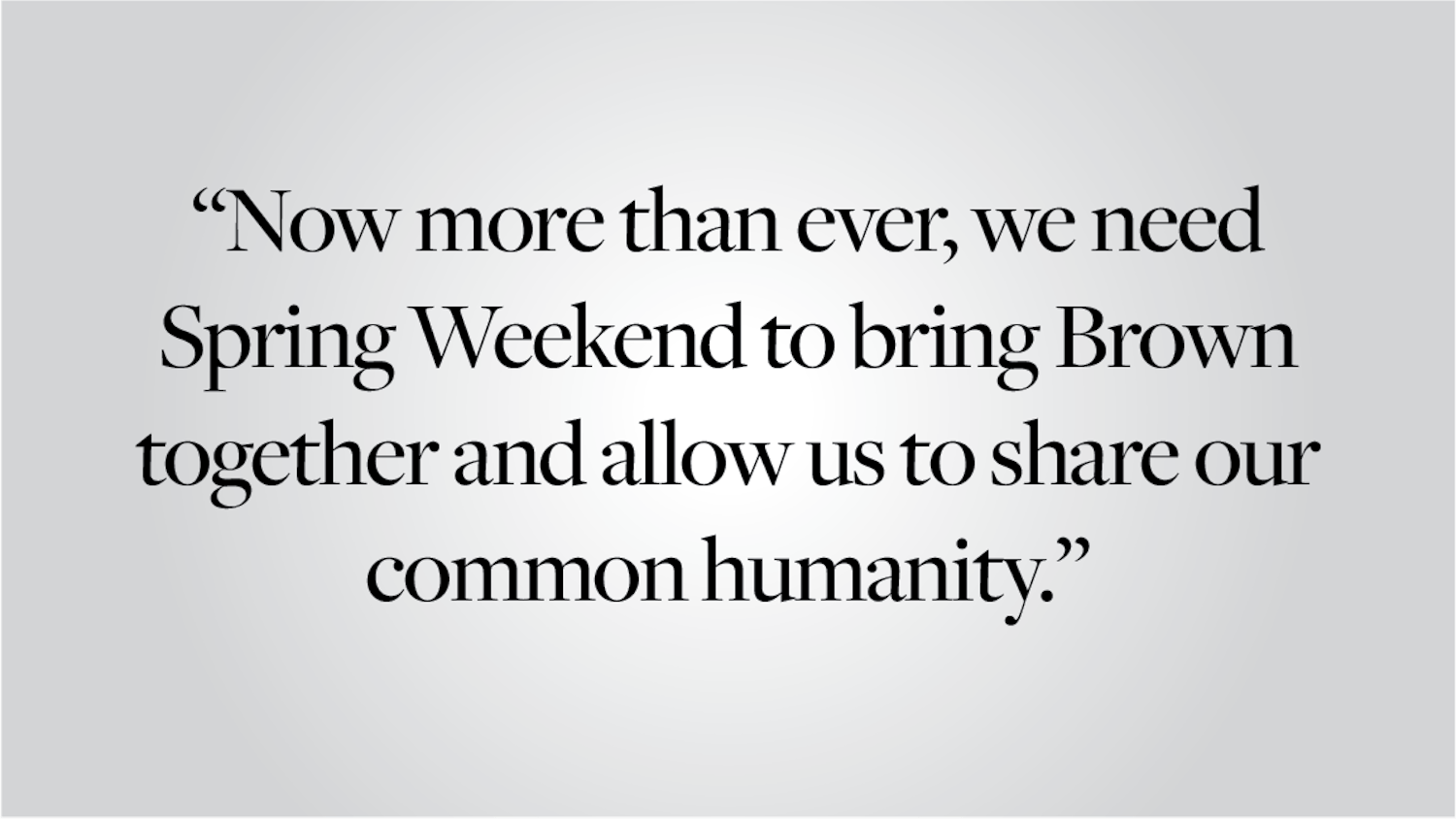As computer science students on this campus know all too well, any trip to the Center for Information Technology is bound to be accompanied by the murmurs and moans of concentrators buried under heaps of assignments. In fact, frequent attendees like me probably have heard whispers of a sort of sick contest as to who can sustain the heaviest workload or survive the most all-nighters. Much of CS culture at Brown is, unfortunately, infected with workaholism.
There are, as I’m sure my fellow CS concentrators are well aware, countless mental and physical health risks that come with severe sleep deprivation and fatigue. Heart disease, obesity, anxiety and depression, to name just a few potential problems, are all strongly correlated with insufficient sleep and chronic exhaustion. Irregular eating and inadequate nutrition are also associated with heart disease, diabetes and stress.
But why do I place an emphasis on students in computer science? Isn’t sleep deprivation a problem for all college students? While this is mostly true, studies have shown STEM students are at the greatest risk of the aforementioned health risks.
Some may brush off these downsides, because it doesn’t seem like sleeping less at 20 could lead to heart disease at 55. Evidence, however, is plentiful to suggest these stressors can increase persistent health risk in adulthood and beyond. Unhealthy habits in youth set a bad precedent and can be root causes for more serious conditions later in life.
I understand that computer science is one of the most demanding concentrations on campus. CS students routinely struggle to juggle project deadlines, club obligations and personal lives, but cutting extra time out of meals or sleep to get things done may not be nearly as effective as many in the department believe. Losing even a few hours of sleep negatively affects both motivation and efficiency. An analysis of employee productivity finds that chronic under-sleepers reduced their productivity three times more than those with normal sleep patterns. Normal sleepers were also 50 percent more motivated to complete work than chronic under-sleepers.
The same can be said for skipping meals. There is evidence to suggest that skipping even one meal a day to delegate additional time for work may reduce not only average productivity but total productivity as well. That is, by skipping breakfast, you may be getting less of your homework done, not more.
I do not want to imply that CS department policy requires that students overwork themselves. In truth, thanks to Brown’s flexible concentration requirements and the Open Curriculum, it is possible for computer science students to lead healthy lives in college while maintaining an active social life. Yet, many do not.
This may be because students in the department glean value from overworking themselves. That’s partly due to a larger fault in American society that sees virtue in “working until it hurts.” To be sure, I am fully behind the idea that we should be proud of what we make. Certainly, there’s virtue in bettering lives everywhere with good software, otherwise I’d be in a different industry. Greatness requires hard work. I look up to those who devote so much of their effort to putting food on the table and making the world a better place. It is, however, largely misguided to sacrifice one’s health, well-being and social life to take an extra CS class or join that grad course a year early.
I get it. Some people really enjoy learning about computer science by taking courses in this department, and some people can handle a larger workload than others. But I can speak from personal experience that 60+ hours of weekly coursework is not a good recipe for forming deep understanding of class material. Overly heavy course loads inevitably lead to cycles of deadline rushes with little or no time to digest new concepts. Never-ending waves of assignments force students out of extracurriculars or social events that are almost always more valuable than the assignments themselves.
Even if one’s primary purpose is to further their CS career, there are more constructive ways to go about it. Networking and social skills are among the most important factors for hiring and promotion in today’s competitive job market. The fact is that an extra-curricular or leadership position may be more influential on a resume than another entry in the coursework list. Even a few good words of referral will likely get you a lot farther than taking an extra grad course.
I’d like to urge those of my colleagues who are eternal residents of the CIT to put some of your energy elsewhere. This career is worth no one’s health, social life or leisure, and the CS concentration ought not be one of pain and suffering. Computer science is about creativity and exploration, freedom and experimentation, and the CS “grind” is antithetical to what should be the mission statement of this discipline.
Donnie Sahyouni ’21 can be reached at donnie_sahyouni@brown.edu. Please send responses to this opinion to letters@browndailyherald.com and op-eds to opinions@browndailyherald.com.





